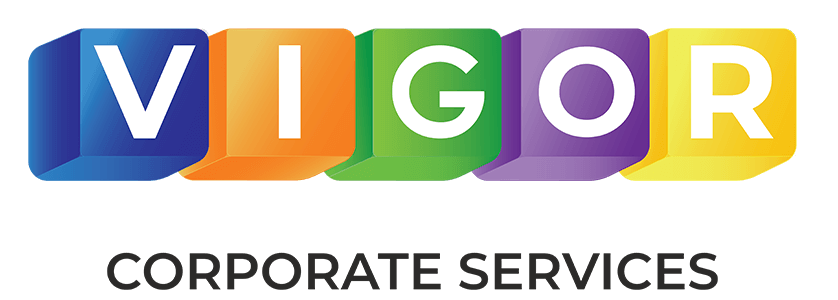Do you wish to start a company in Dubai? Starting a company anywhere is often a complex process that demands much time, money, and thought. In Dubai, however, the process is quite simple, affordable, and quick. To begin with, you can set up your company on the mainland under the authority of the Dubai municipality, or anywhere in Dubai’s various Free Zones under the relevant authority.
There are various requirements you need to meet before setting up, depending on the nature of your company. This article compiles 8 of the general basic requirements needed to set up a company in the Emirati city of Dubai they include
- Appropriate company name
- Registration charges
- Office rental charges
- License acquisition and renewal fees
- Share capital
- Residency visa
- Local partner
- Startup plan
1. Appropriate company name
To start your own company in Dubai, you need to have an identifying brand name. choosing a company name in Dubai requires much thought. The UAE has a stringent set of naming conventions that all companies need to adhere to. If the company name includes your name, you have to put it in full as no initials are allowed.
Other than this, you have to avoid anything that might count as blasphemous, and also avoid names that might amount to infringement Minimum Investment to Start a Business in Dubai of known brands and other established company names.
Your choice company name must be available and eligible for registration. If you have problems picking a suitable company name, consult an expert for plausible suggestions.
2. Registration charges
Your company needs to be registered by the Department of Economic Development after your company name has been approved. You will need to part with a considerate amount of money as a one-time registration fee. Depending on the size and nature of your company, as well as the legal requirements in the particular location whether in the mainland or any of the Free zones, this can be anywhere between 9,000 to 10,000 Dirhams.
This is a one-time requirement that you will need to be aware of beforehand so that you can set it aside.
3. Office rental charges
Every company requires adequate office space with proper furniture and relevant facilities. Based on your company’s size and needs, there are scores of business premises to let around Dubai, with varied rental prices. You will need to explore your choices to find out the most appropriate, suitable, and affordable office space for your company, and add the rental fee to your startup budget.
Also, based on size, quality, and flexibility, office desks and other equipment may cost you between 10,000 to 20,000 AED.
4. License acquisition and renewal charges
To run a company in Dubai one requires a legal operating license from the Emirati government. This can be either an industrial, service, or trade license based on the nature of your company. Licenses are issued upon registration and renewed annually under the UAE government. Depending on the size and legal Dubai Academic Freezone structure of your company as well as the relevant legal authority, this will cost you anywhere between ten thousand Dirhams to fifty thousand AED every year.
The license fee should be in your startup budget, and you need to conduct personal research to be aware of the amount required in advance.
5. Share capital
The share capital is different in each free zone as well as the mainland, depending as well on the type of company, its magnitude, and relevant licenses. The average share capital for Dubai’s free zones is fifty thousand Dirhams. However, depending on the size and nature of your company, you may need to set aside less or more funds, which is anywhere from 1000 Dirhams up to even a million.
6. Residency visa
If you are an overseas investor, you will need to obtain a residency visa to operate in the UAE. This is usually a simple process, where you submit your documents for typing and approval by immigration. The entire process takes anywhere between 2 to 10 days, and costs between 300 to slightly over 4,000 Dirhams to renew annually depending on the type of company you need to start.
As a holder of a UAE business license, you are eligible to sponsor other individuals for a visa as well.
7. Local partner
As an expatriate investor with a commercial or industrial license, you will need a local partner to operate on the mainland. The local partner should be recognized as a joint liability company and will be eligible for more than half the shares by 1 percent. However, with the right consultants, you can find a suitable local partner that will not be entitled to your profits or the proceeds of your company.
However, if your company is eligible for a professional services license, then you do not require a local partner to operate on Dubai’s mainland.
8. Startup plan
If you are going to start a company in Dubai, then you require a solid startup plan to ensure you are not stalled or at risk of collapsing. For this, it would be best to contract the services of experienced, qualified, and reputable consultancy companies to help you map out a developmental path for you and put in place disaster-management policies and strong backup policies for a rainy day.
Your startup plan should cover all the required expenses and emergency costs, identify all possible risks you face and accordingly map out relevant solutions.
Conclusion
Starting up a company in Dubai is a smooth and simple process. The UAE has paved way for foreign and local investors to establish their companies and progress with ease. Provided you meet all the legal requirements to set up in Dubai, the startup procedure is relatively cheap and accommodating.
You can set up your company anywhere in the free zone, and on the mainland if you have a professional services license or a local sponsor. As an expatriate investor, you also need a residence visa to operate within the UAE. Before you setup, your company, ensure your startup plan covers all the legal and personal costs, as well as emergency expenses that may crop up along the way. Get a qualified consultancy company to guide you on how to go about it, as well.




